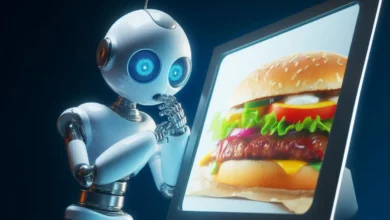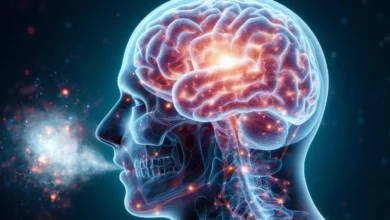Latest Articles
-
Oct- 2023 -10 OctoberAI

Emotional Bytes: Can AI Crave a Favorite Food?
Lead Image: Penn State researchers are developing an electronic tongue that simulates the human process of gustation, which could influence AI to make decisions more like humans. This innovation is part of an effort to incorporate the emotional intelligence aspect, often overlooked in AI research. This electronic gustatory system can currently detect all five primary tastes and has numerous potential applications, from AI-driven diets to personalized restaurant offerings. Electronic tongue’ holds promise as possible first step to artificial emotional intelligence. Can artificial intelligence (AI) get hungry? Develop a taste for certain foods? Not yet, but a team of Penn State…
Read More » -
9 OctoberMental Health

Antidepressants vs. Running: What Works Best to Beat Depression
Lead Image: Research comparing 16-week regimens of antidepressants and running exercises found both to be similarly effective for mental health. However, running showed more physical health benefits, while antidepressants slightly worsened physical health. Despite this, adherence to running was lower than to medication. First trial to directly compare effects of treatments on mental and physical health shows clear benefits of exercise, and slight physical worsening with antidepressants. But can patients stick to the exercise? The first study to compare the effects of antidepressants with running exercises for anxiety, depression, and overall health shows that they have about the same benefits…
Read More » -
7 OctoberMental Health

Esketamine Nasal Spray: A Game-Changing Treatment for Clinical Depression
Lead Image: Esketamine Nasal Spray. In a pivotal trial, esketamine outperformed standard treatments for resistant depression, with 28% of patients achieving remission in eight weeks, versus 18% using quetiapine. Credit: Janssen Pharmaceutica NV Esketamine has showcased promising results in a major clinical trial, proving more effective than standard treatments for treatment-resistant depression. Treatment-resistant depression (TRD) is a particularly challenging form of major depressive disorder. As Albino Oliveira-Maia, head of the Champalimaud Foundation’s Neuropsychiatry Unit and the study’s national coordinator for Portugal, explains, “TRD is defined as the persistence of depressive symptoms despite adequate courses of at least two different antidepressant…
Read More » -
6 OctoberClimate Change

Scientists Unveil New Carbon Capture Method That Plucks CO2 Straight From the Air
Lead Image: Northwestern University has developed a “moisture-swing” technique for direct air carbon capture (DAC) which captures CO2 at low humidities and releases it at high humidities, utilizing a range of ions. This research enhances DAC understanding and offers a more energy-efficient carbon capture method compared to traditional techniques. Leveraging technology powered by humidity, scientists discovered several new ions that facilitate low-energy carbon sequestration. As the global community gradually moves towards decarbonizing industrial operations, it’s imperative not just to prevent the production of new atmospheric carbon but also to extract the already present carbon dioxide. While traditional carbon capture focuses…
Read More » -
5 OctoberBrain

Brain’s Breathing Block: Deciphering Unexplained Epilepsy Deaths
Recent research offers fresh insights into the causes of SUDEP (Sudden Unexpected Death in Epilepsy). The study pinpointed a specific region in the amygdala that, when stimulated, can induce prolonged apnea, even after a seizure concludes. This groundbreaking discovery, combined with innovative brain imaging techniques, may lead to enhanced understanding and potential preventive treatments for SUDEP. Study finds amygdala region is linked to persistent loss of breathing after seizure. New findings may take scientists a step closer to understanding what causes SUDEP—Sudden Unexpected Death in Epilepsy—a rare but fatal complication of epilepsy. There are about 3,000 deaths from SUDEP each…
Read More »










